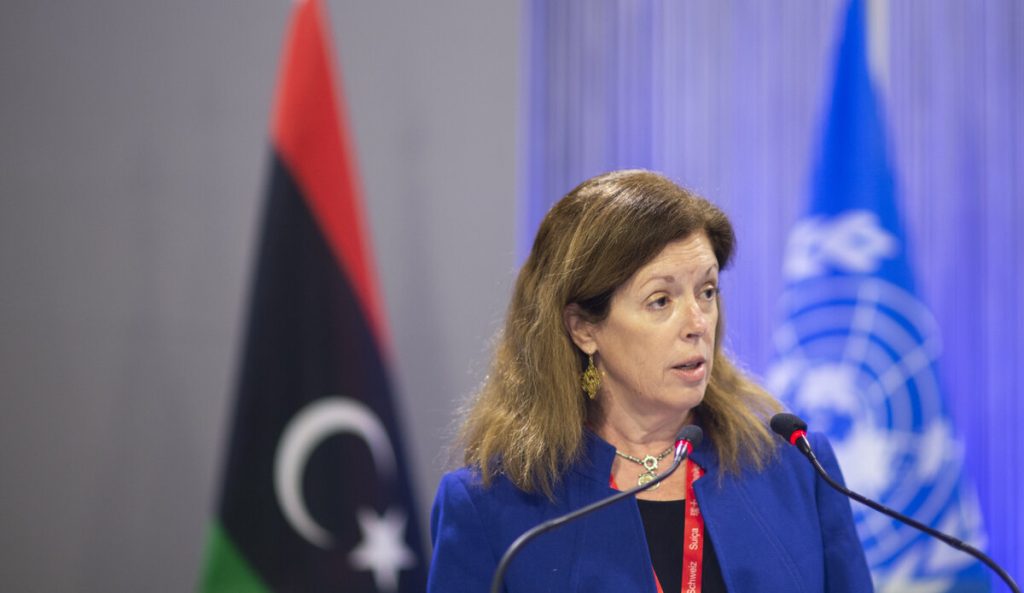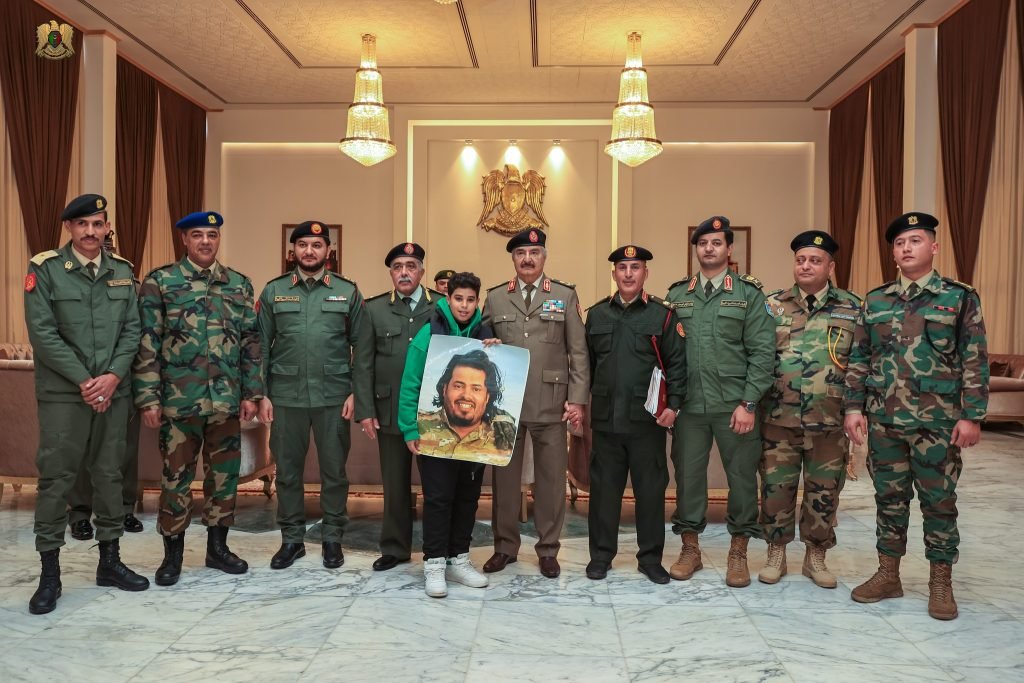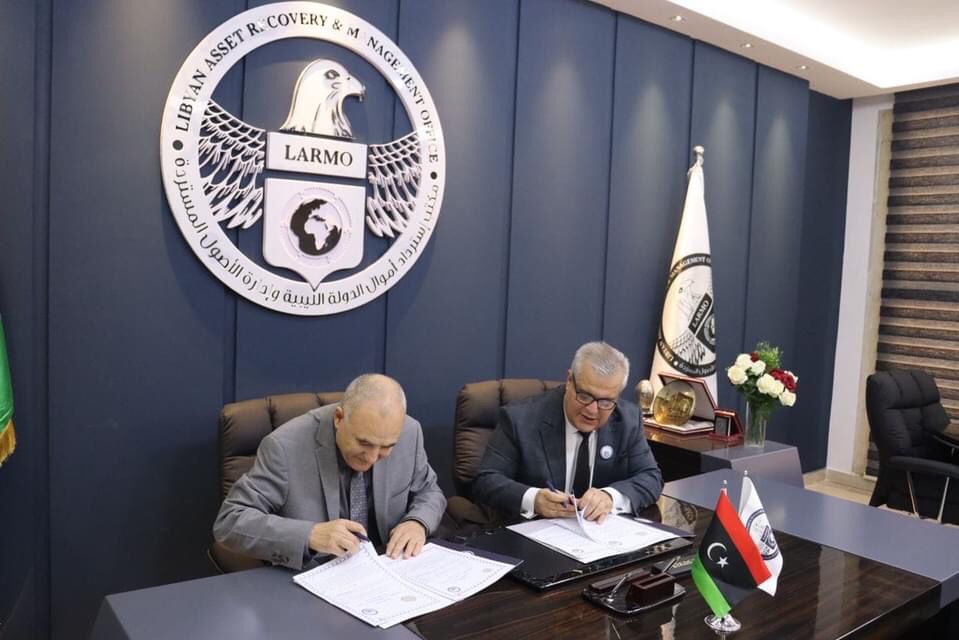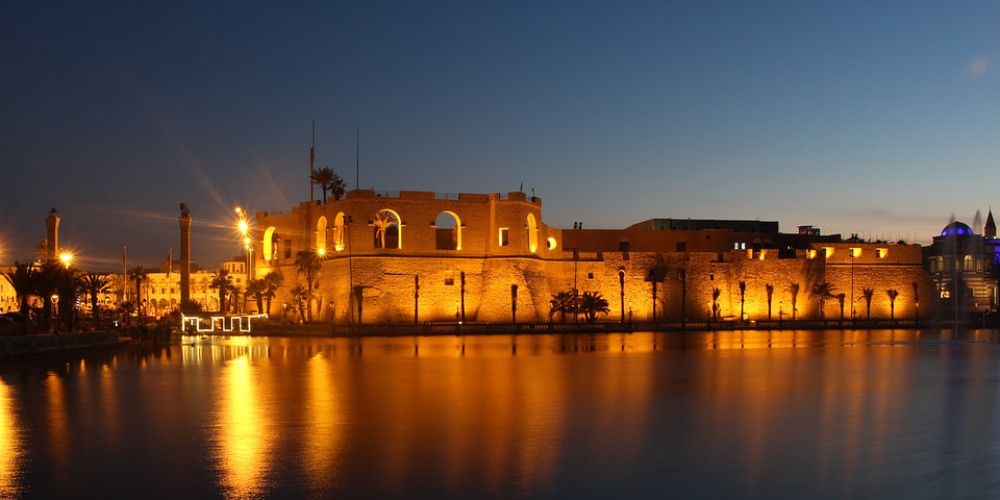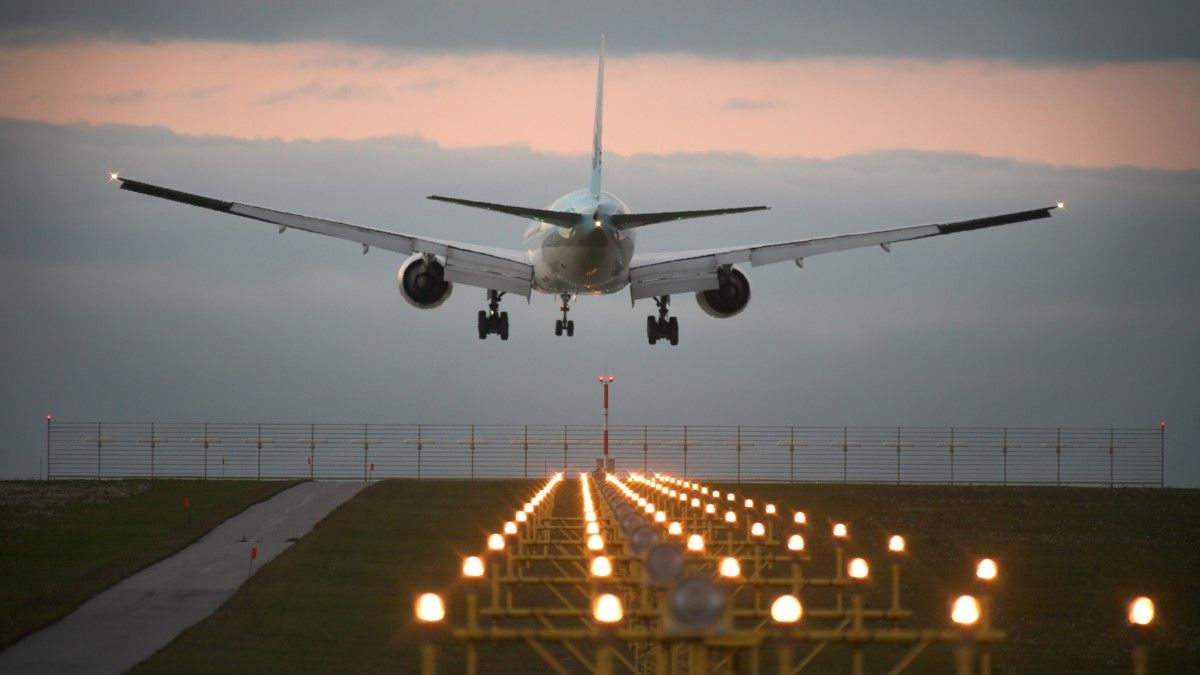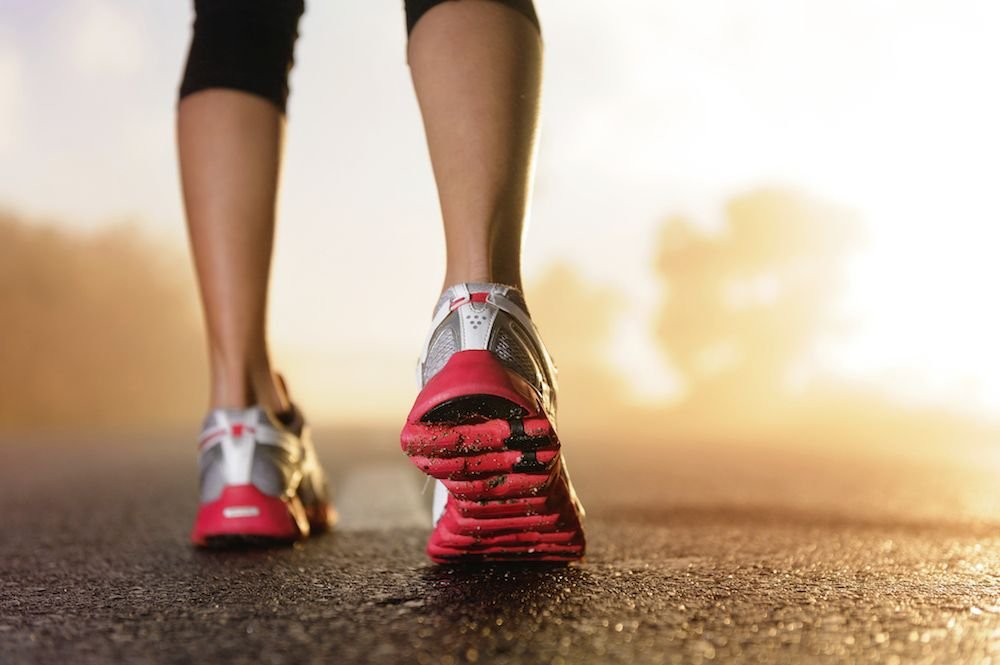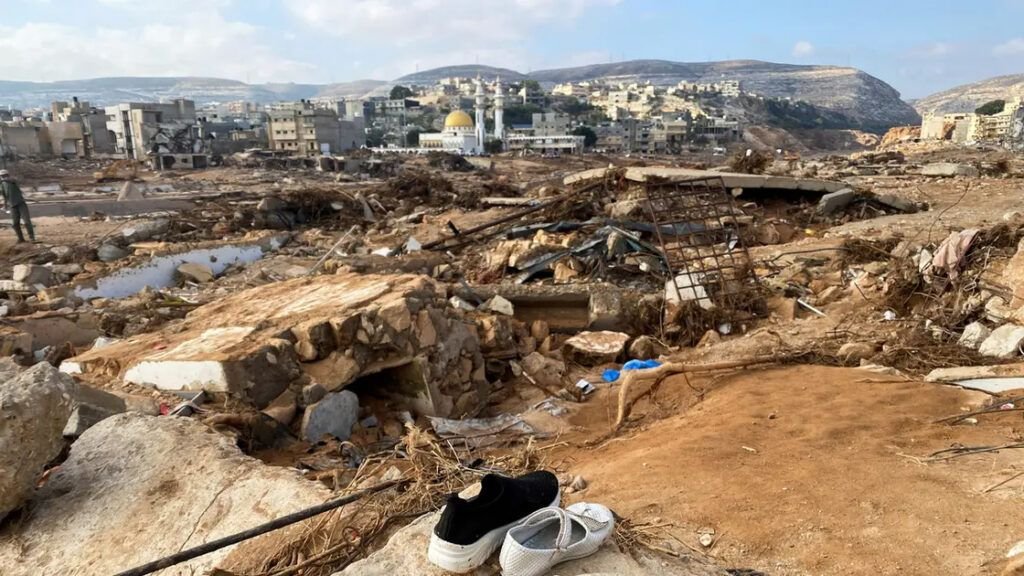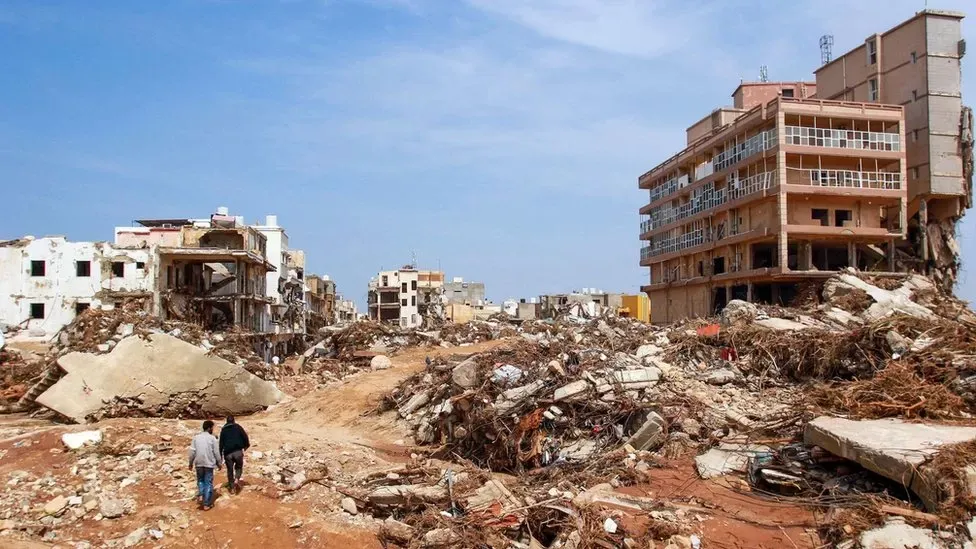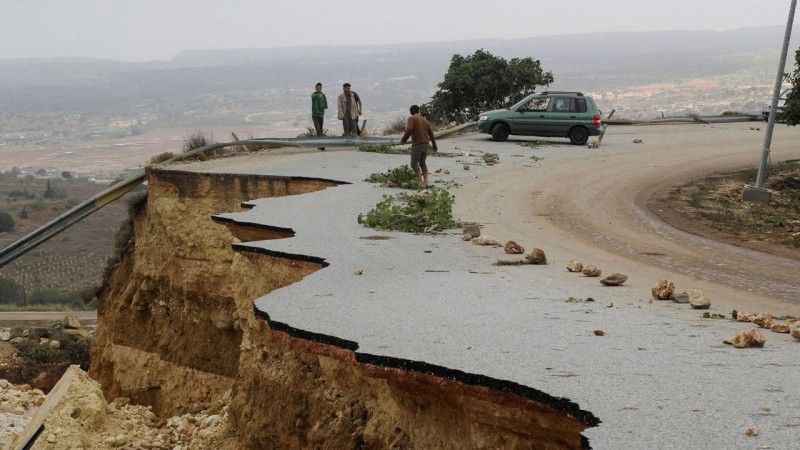The Kingdom of Jordan has imposed visa requirements on Libyans from 15 to 49 years old, or a written security approval from the Jordanian Ministry of Interior to enter its territory.
This came in a letter to the Libyan Airlines, saying that all travelers must obtain a QR code and register on the electronic entry platform of the Kingdom of Jordan.
Beautiful beaches? Interesting cultural and historical sights? Amazing natural landscape? Check. All these ingredients for an amazing vacation can be found in the place you least expect: Libya. While Libya’s political environment usually dominates the headlines, not its beaches, it’s still worth learning more about its beauty, people, and history.
Where is Libya located?
Libya is the fourth largest country in Africa and the seventeenth largest country in the world. It is located in the Mediterranean between Egypt and Tunisia, in the south – between Niger and Chad, in southeast-between Sudan. Although the oil discoveries of the 1960s brought enormous wealth, Libya was an extremely poor desert state at the time of independence, whose only important physical asset appears to have been its strategic position in the center of the northern fringe of Africa. Libya was within easy reach of major European states. It connected the Arab countries of North Africa with the Middle East, which throughout history made its urban centers noisy crossroads, rather than isolated backwoods without external social influence. Thus, there was a huge social divide between cosmopolitan cities and populated mostly by foreigners and deep desert areas where tribal leaders ruled in isolation and minimal social change.
Colonization of Libya
The coastal region of present-day Libya was under the rule of the Ottoman Empire from 1551 to 1864, as the Eyalet of Tripolitania (Ottoman Turkish: الالت طرابلس غرب Eyālet-i Trâblus Gârb) or Bey and subjects of Tripoli Barbary from 1864 to 1912 and as the Vilayet of Tripolitania (Ottoman Turkish: الايت طرابلس غرب Vilâyet-i Trâblus Gârb) from 1864 to 1912. It was also known as the Kingdom of Tripoli, although technically it was not a kingdom, an Ottoman province ruled by pashas (governors). The Karamanli dynasty ruled the province as de facto hereditary monarchs from 1711 to 1835, despite remaining under nominal Ottoman rule and suzerainty from Constantinople.
Someone else was a colony of Libya?
The Italian colonization of Libya began in 1911 and continued until 1943. The country, formerly part of the Ottoman Empire, was occupied by Italy in 1911 after the Italo-Turkish War, which resulted in the establishment of two colonies: Italian Tripolitania and Italian Cyrenaica. In 1934, they were merged into the colony of Italian Libya. In 1937, this colony was divided into four provinces, and in 1939, the coastal provinces became part of metropolitan Italy. Colonization lasted until Libya’s occupation by Allied forces in 1943, although Italy officially renounced all claims to Libyan territory only after the conclusion of the Paris Peace Treaties in 1947. Where is Libya located? In the middle of the action!
Libya today
The US State Department currently has a travel advisory for Libya warning against any travel to areas outside Tripoli, the capital of Libya. Many places in Libya are now extremely insecure, especially those outside the control of the central government and suffering from warring militias’ actions. So maybe it’s not time to pack up yet.
Post-Gaddafi Libya
To better understand the situation in Libya today, we need to go back to the recent past. The citizen protests that began in Tunisia in December 2010 (the Arab Spring) arrived a month later in neighboring Libya, although in a different way, as the mass and popular demonstrations that characterized Tunisia and Egypt were not repeated. In contrast, Benghazi, where the anti-Gaddafi movement was concentrated, was dominated by Islamist groups. Some political analysts agree that there has never been a mass movement on a national scale in Libya, as in other countries, or popular support for the Gaddafi Libya government’s overthrow. However, the uprisings in Benghazi were enough for the UN Security Council and NATO to step in on behalf of the “Responsibility to Protect” (Resolution 1973) and launch a bombing campaign between March and October 2011 that had a decisive impact on Gaddafi’s assassination. According to Thierry Meyssan, NATO’s intervention in Libya’s internal affairs and the overthrow of Gaddafi resulted not of a conflict between Libyans but of a long-term regional strategy of destabilization for the entire Middle East group.
Nine years after his death, the people torn apart by the chaos of the capital of Libya began to get bored on a long-standing leader in the growth of everyday life’s frustrations. “I hate to say it, but under the previous regime, our lives were better,” Fayza al-Naas, a 42-year-old pharmacist, told AFP in 2015, referring to Gaddafi’s rule. This sentiment is shared by many Libyans, including those who at one point opposed it. An economically and socially stable Libya under Gaddafi against a fragmented country, without a government, devastated by attacks, bombing, and constant clashes, resulted from the NATO invasion in 2011. The conclusion that an, unfortunately, supported for nearly a decade later. Who is right, and who is to blame, and is it worse in Libya after Gaddafi? This question will remain open for many years to come. Nevertheless, the Libyan government is working hard to improve security conditions and strengthen the tourism industry. There was an article on the “Foreign Policy” blog about why Libya is a great place to visit: “When most Libyans look around, they still see the same old country they’ve always loved, and can only imagine what successful place it would be if they open it to the outside world.” A fantastic range of Roman ruins and other ancient Libya tourist attractions. The romance of the great sandy ocean of the Sahara. And all this is just a short ferry ride from the European Union.” So, let’s move on to the more pleasant part of our article! Here are 9 reasons should travel to Libya:
1. Cyrene
Cyrene, Libya, is the archaeological ruins of the ancient Greek city of Cyrene, one of the five UNESCO World Heritage Sites in the Libyan Arab Jamahiriya. The Greeks built Cyrene in the 4th century BC and later became part of the Roman Empire. The temple of Zeus, located on this land, is just one of the many amazing Cyrenean complex attractions.
2. Leptis Magna
Leptis Magna is one of the best places in Libya. Leptis Magna, also a UNESCO World Heritage Site, was one of the most beautiful cities of the Roman Empire. It is now one of the main Libya tourist attractions due to its unusual architecture and historical interest.
3. Villa Silene
Villa Silene is a Byzantine manor house located near the Leptis Magna site. The old house has beautiful mosaic floors, beautiful gardens, and views of the Mediterranean Sea. A trip to Leptis Magna and the villa would turn into a great day trip.
4. Sabratha
Sabratha is an ancient city originally built by the Phoenicians and later became part of the Roman Empire. The ancient history preserved in ruins and the beautiful Mediterranean location make it the main attraction of Libya.
5. Tripoli
The capital of Libya is one of the safest places to visit and one of the most beautiful. A visit to Tripoli is worth getting acquainted with the Turkish and Italian architecture, the Red Castle, the richly decorated mosques and churches, the Old Town, the great restaurants, and the magnificent views of the coast. It’s also beautiful at night!
6. The beautiful architecture of Tripoli
The Arch of Marcus Aurelius is located in the Old City of Tripoli. The monument was built when the area was part of the Roman city of Oea and reflected the Roman influence that permeates the country. Tripoli is full of architecture that reflects the different cultures that are part of the history of Libya – Phoenician, Greek, Roman, Turkish, and Italian. In addition to the beauty of the building itself, the Red Castle is the national museum of Libya. Take a look at the history of Libya before you start exploring all that Tripoli has to offer. The Gurgi Mosque, also located in the Old City of Tripoli, was built in the 19th century when Libya was part of the Ottoman Empire. The mosque features some of the best examples of Islamic art in the city. Tripoli’s Medina, or Old Town, is one of the main Libya tourist attractions due to its famous fish market, historical attraction, thriving nightlife, and beautiful European architecture.
7. The Sahara Desert
Most of Libya consists of the Sahara Desert. Tour companies can take you on an excursion to the Sahara, where you can see the wonderful landscape and visit the desert oases.
8. Ghadames
The old town of Ghadames, Libya, often called “the pearl of the desert,” is an oasis city in the middle of the Libyan desert.
9. The Mediterranean coast
The north of Libya, including Tripoli, borders the Mediterranean Sea, making some gorgeous beaches and coastlines a must for any traveler to Libya. Despite the security problems and the sad political situation, there are many places and reasons why you should travel to Libya that make this country a great place to stay. Be open about your travels, and you can still create the adventures of a lifetime in one of the most beautiful and historically rich countries in the world.
